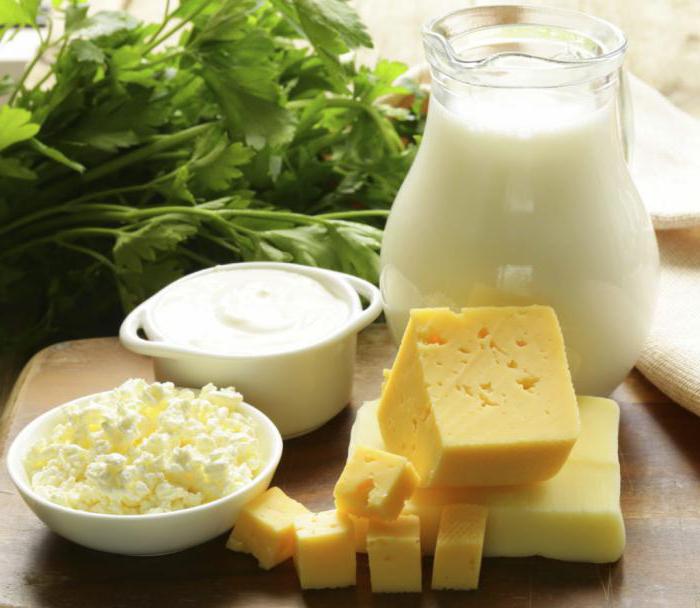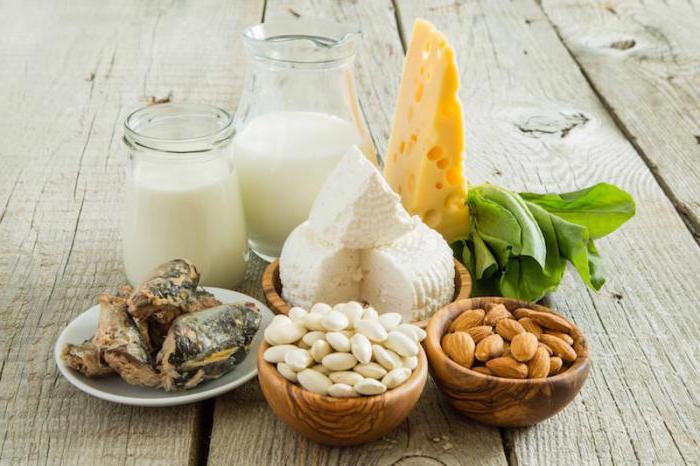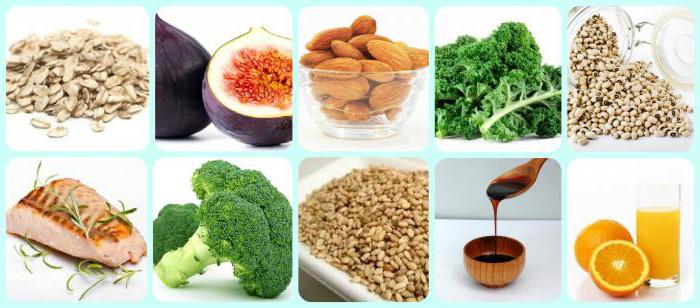Calcium deficiency in the body affects the health of hair, nails, skin, teeth. It is important to take your diet seriously from childhood, maintaining a balance of important micronutrients. Everyone understands that calcium is a necessary building material for human bone tissue. Let's try to figure out which foods contain calcium. You can find the list of products below.
Daily dose of calcium
What is calcium used for in our body? All cells in the body need it. It stabilizes the work of the heart muscle and circulatory system, participating in the process of constriction and expansion of blood vessels. Thanks to calcium, the processes of blood clotting are regulated, the work of the immune system is supported. To understand how much calcium a person needs to consume per day, you need to know the correct dosage for different categories of people.
- An adult needs 1000 mg per day.
- Pregnant and lactating women - 2000 mg.
- Teenagers - 1200 mg.
- Children under 10 years old - 800 mg.
- Children under 3 years old - only 600 mg.
How is calcium absorbed in the body?
If you eat foods with a lot of calcium, then many people think that deficiency can be avoided. In fact, it is absorbed only in the presence of other useful products. In order for calcium to be absorbed in sufficient quantities, vitamin D is required. It is formed in the human body under the influence of the sun, but it is also present in foods. These are egg yolk, butter, fish oil.
Babies under 3 years of age are prescribed vitamin D drops during autumn and winter bad weather, when walks have to be abandoned. In summer, additional vitamins are not needed, as the child receives them when walking in the sun.
The abundance of unrefined sugar in the adult diet and an excessive amount of salt harm the absorption of calcium. The mineral is washed out of the body and when drinking alcoholic beverages, sweet soda and strong coffee. Its lack must be compensated. Where is a lot of calcium, in what products?

Foods rich in calcium
Many people think that it is in dairy products with a high percentage of fat that the content of a useful element is at the highest level, but this is not so. However, calcium in such products is better absorbed due to lactose. Garden-grown foods often contain more calcium. Consider what foods contain calcium. The list of products is as follows.
Dairy and dairy products:
- Milk.
- Kefir.
- Yogurt.
- Ryazhenka.
- Cottage cheese from 2% fat.
- Cheese (especially hard varieties).
Vegetables and greens:
- Cabbage.
- Garlic.
- Broccoli.
- Sorrel.
- Oregano.
- Parsley.
- Nettle.
Where else is there a lot of calcium? Meat, fish, seafood.
In canned fish (sardines, salmon, pink salmon) there is a lot of calcium, and it is well absorbed, because they contain fish bones, which are the source of this mineral. Fish is recommended to be included in the diet 2 times a week. Even in kindergartens, steam fish and fish cakes are always on the menu.
- Dried fish (up to 3000 mg of calcium per 100 g).
- Salmon.
- Shrimps.
- Beef.
Seeds, nuts:
- Sesame seed.
- Pistachios.
- Almond.
- Hazelnut.
- Sunflower seeds.
- Peanut.
- Pumpkin seeds.

Calcium in dairy products
To know how much to eat cottage cheese or cheese to provide a daily dose of calcium, you need to understand this issue. When planning a diet, we will determine how much calcium is in cottage cheese, using the studies already conducted. 100 g of cottage cheese (not fat-free) contains up to 200 grams of the mineral.
To answer the question of how much calcium is in milk, let's determine its quality. In goat's milk it is more on average by 20% than in cow's. A glass of skimmed cow's milk has 244 mg of Ca, and a glass of whole milk has 236 mg.
Many are interested in the question of how much calcium is in cheese and how to determine cheese rich in calcium. The variety of types of cheese on store shelves is increasing every day. However, hard parmesan cheese has the highest concentration of calcium: 1200 mg of the mineral per 100 grams of the product. In Russian cheese 900 mg per 100 g, in mozzarella - 515 mg. Soft cheese has the lowest concentration of calcium.

How is calcium absorbed in infants?
When breastfeeding in an infant, the assimilation of the mineral occurs by 70%. With artificial feeding with mixtures, the calcium contained in them is absorbed only by 30%. Artificers are more prone to diseases associated with a lack of calcium. And all because the heat treatment of products converts this element into an inorganic compound that is poorly absorbed by the human body.
Replacing milk as a source of calcium
Vegetarians do not consume dairy products. In addition, there are people who are lactose intolerant. How can they get the very necessary element for their body? A plant-based milk fat substitute is suitable for them. Most of all in this regard, almond milk is suitable, where there is a lot of calcium. Its content in this product is 90 mg per glass. Calcium is also well absorbed from plant foods, so cow's milk is not necessary for everyone.

Fact or myth: salt leaches calcium
The kidneys are responsible for both sodium and calcium. When they remove salt from the body, calcium is lost along with it. Many nutritionists agree that in order to keep bones strong and fluid does not accumulate in the cells of the body, you need to limit salt intake.
For fractures and after complicated operations, patients are prescribed a salt-free diet and easily digestible food, vegetables, fruits and dairy products. Boiled rice, oatmeal porridge and jelly are the main companions of those who care about their health and want the fastest fusion of bones.
A complete menu of products with calcium for a day
What do you need to eat in order for calcium to be absorbed by the body and fully satisfy the need for this element for a day? Assuming that you do not have intolerance to dairy products, then you can develop the following menu:
First option
Breakfast: 100 grams of hard cheese, you can have a sandwich with butter. Egg.
Lunch: fresh vegetable salad with beans, yogurt. (during the day you can eat nuts: cashews, almonds, peanuts)
Dinner: a glass of kefir or yogurt.
Second option
Breakfast: cottage cheese 2% with yogurt; tea with milk.
Lunch: salmon steak, grilled vegetables.
Dinner: ryazhenka or a glass of milk.
Third option
Breakfast: cheesecakes with yogurt.
Lunch: seafood pasta, salad with vegetables and herbs.
Dinner: a glass of milk.
Here are considered options solely for compliance with the norm of calcium intake. The rest of the products you add at your discretion.

Supplements and vitamins with calcium
Not everyone is comfortable remembering how much food to eat in order to provide the necessary dose of calcium per day. It is more convenient to take vitamins or minerals in the form of food supplements. Do not trust the latest pharmaceutical industry. Read the composition of the drugs that you are going to purchase.
Calcium carbonate should be taken after meals, so it is absorbed better. The mineral is best absorbed in preparations with vitamin D. The most prescribed drugs in this regard are Calcium D3 Nycomed, Complivit Calcium D3.
Remember that without eating vitamins C, D, E, group B, calcium will simply turn into insoluble compounds and settle in the muscles and joints.
How to treat calcium deficiency
If, nevertheless, it is not possible to unlearn bad habits and it is impossible to eat foods rich in calcium, then preparations containing this element come to the rescue. Do not forget about folk methods. Scientists have proven that calcium carbonate in the eggshell is absorbed by the human body by 90%. In addition, this affordable remedy is more useful than any pharmacy supplement.
Eggshells are also recommended for children under 6 years old, because they have an active formation of the skeleton. Elderly people are prescribed calcium supplements due to bone fragility, but they may well be replaced with natural eggshells.
Everyone can prepare such a drug at home, only necessarily from domestic eggs. The shell must be dried, ground with a coffee grinder into a fine powder and taken 1 tsp. on an empty stomach for 10 days. Then you need to take a break for a month. At the end of the course, the course can be repeated.

Importance of calcium for human health
The role of calcium in the human body is certainly responsible. It does not work on its own, but together with other vitamins and minerals it brings undoubted benefits. In the active growth and development of the child's body, it supports and supports the bones and joints, the formation of the skeleton and teeth. For women, its lack during pregnancy and lactation can bring noticeable negative consequences - brittle teeth and nails, pain in the lumbar spine, lack of milk during feeding. In men's health, it is also important - to prevent osteoporosis, stoop, vascular diseases, allergies. It is he who plays a role in fertilization, so calcium deficiency can be the cause of male infertility.
It is desirable to take care of your health and the health of your loved ones constantly. Even if there are no health problems, it is recommended to donate blood for analysis once a year. The increased content of calcium in the blood can already show that there is a deficiency in the body.
As a preventive measure, you can take calcium supplements if you have increased physical and mental stress, dry and brittle hair, insomnia, irritability, caries prevention. Eat vitamins and minerals in the right amount and be healthy!


